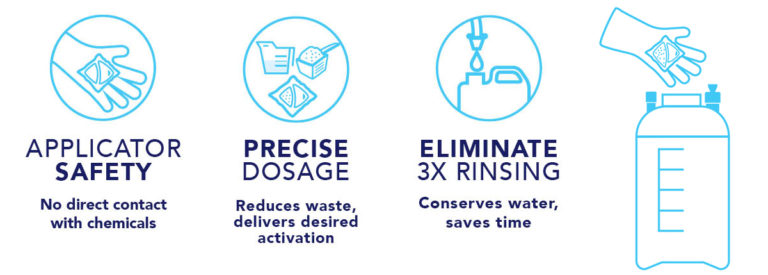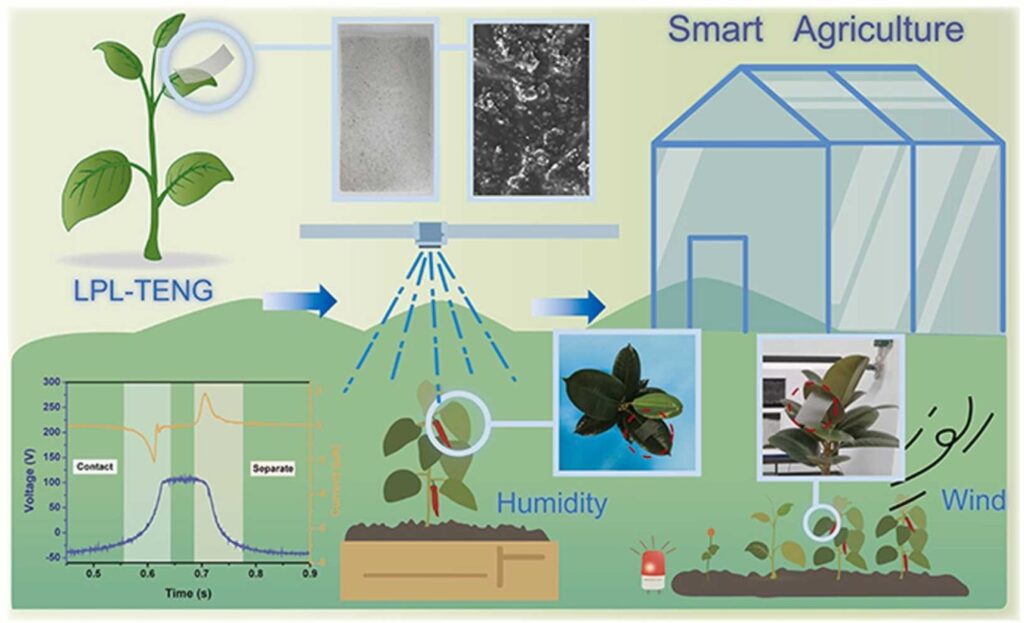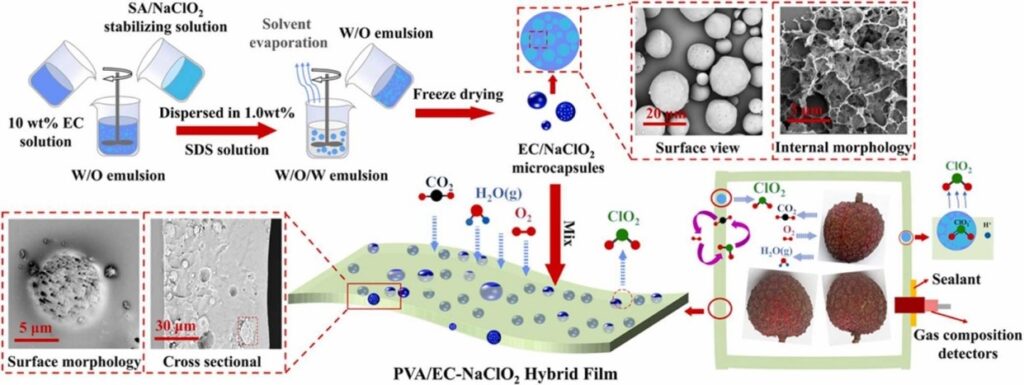The agricultural sector needs innovative solutions to feed a burgeoning global population and curb environmental impacts. Conventional plastic packaging, a staple in agriculture, presents significant issues in waste management and environmental pollution. Enter water-soluble films, a novel alternative with unique properties that dissolve in water, leaving minimal or no environmental residue. This in-depth exploration delves into the applications, benefits, challenges, and future potential of these films in agriculture.

Understanding Water-Soluble Films
Water-soluble films are polymeric materials engineered to dissolve in water, leaving minimal or no environmental residue. They offer a biodegradable, eco-friendly packaging solution. The composition of water-soluble films varies, with materials such as polyvinyl alcohol (PVA), polyvinylpyrrolidone (PVP), and cellulose derivatives being commonly used.
Applications of Water-Soluble Films in Agriculture
Water-soluble films that dissolve in water offer a sustainable alternative to traditional agricultural plastic packaging. Their unique properties have led to diverse applications across the farming value chain.
Seed Coating: Encapsulating seeds within a water-soluble film offers several advantages:
- Precision Planting: The film ensures uniform seed spacing, preventing overcrowding and optimizing plant growth.
- Protection: The film protects against pests, diseases, and adverse weather conditions during transportation and sowing.
- Nutrient Delivery: The film can be infused with essential nutrients, directly providing a controlled release of fertilizers to the seed.
- Germination Enhancement: Some films incorporate growth-promoting substances to boost germination rates.
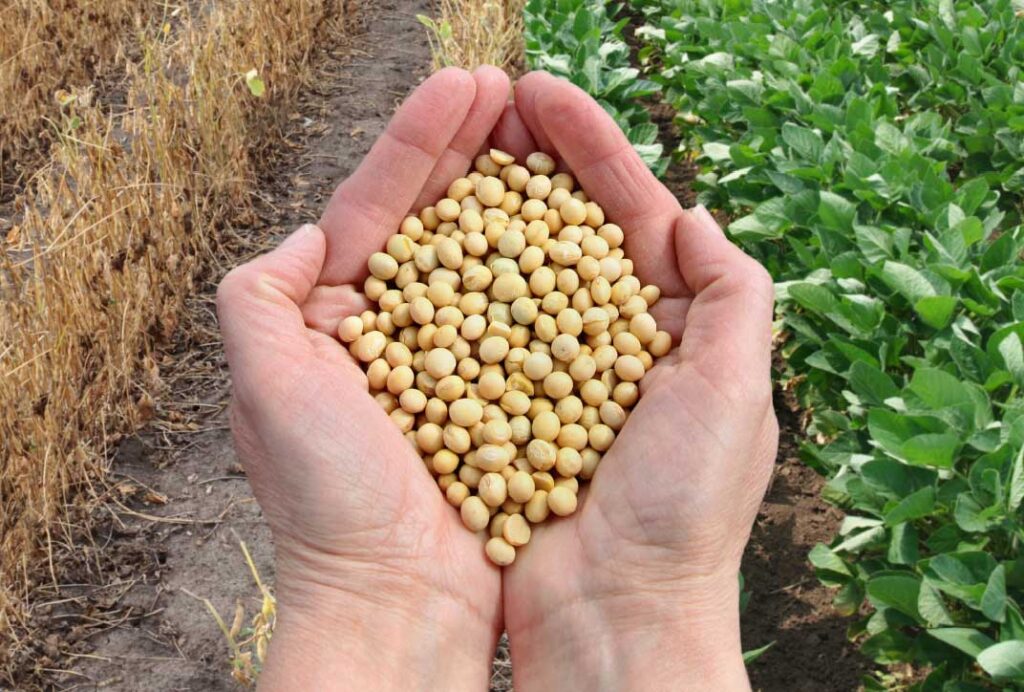
Fertilizer and Pesticide Delivery: Water-soluble films can be utilized as carriers for fertilizers and pesticides, offering several benefits:
- Controlled Release: The film gradually dissolves, releasing nutrients or chemicals at a controlled rate, optimizing plant uptake and minimizing environmental impact.
- Precision Application: The films reduce the risk of chemical runoff and soil contamination by targeting specific areas.
- Reduced Labor Costs: The films simplify the application process, saving time and labor.
- Improved Crop Health: Controlled release of nutrients promotes healthier plant growth and development.
Mulch Films: Water Soluble Mulch films provide a sustainable alternative to traditional plastic mulches. Their key benefits include:
- Weed Control: The film is a physical barrier, preventing weed growth and resource competition.
- Soil Moisture Retention: The film helps maintain soil moisture, especially in arid regions, by reducing evaporation.
- Soil Temperature Regulation: The film can help regulate soil temperature, boosting perfect conditions for plant growth.
- Residue Management: The film enriches the soil with organic matter upon decomposition.
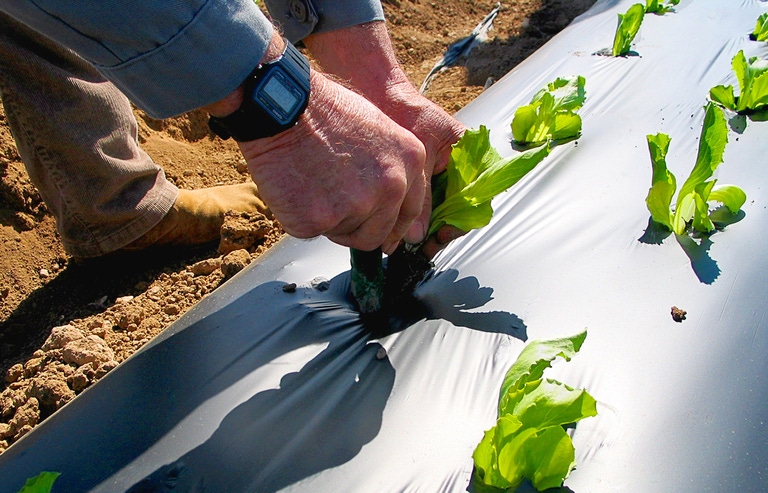
Plant Protection: Water-soluble films can be used to create protective coverings for seedlings and young plants:
- Frost Protection: The films can act as a barrier against frost, protecting delicate plants.
- Pest and Disease Control: By creating a microclimate, films can deter pests and reduce the incidence of diseases.
- Wind Protection: The films can shield young plants from damaging winds
Harvest and post-harvest: Water-soluble films find applications in post-harvest handling and packaging:
- Packaging: The films can wrap fresh produce, extending shelf life by reducing moisture loss and preventing contamination.
- Residue Removal: Upon consumption, the film dissolves, eliminating the need for additional packaging waste.
- Food Safety: The films can act as a barrier against microbial contamination, ensuring food safety.
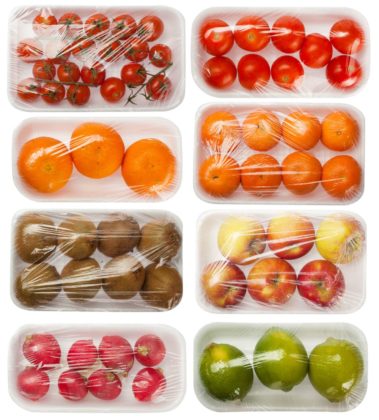
Challenges for Water-Soluble Films
While water-soluble films offer a potential game-changer for sustainable agriculture, several hurdles impede their widespread adoption. However, it is crucial that we remain determined and committed to overcoming these challenges.
- Material Properties: Striking the right balance between strength, flexibility, and degradability is a significant hurdle. The film must be robust enough to withstand transportation, handling, and potentially harsh weather conditions (wind, rain) while ensuring it degrades entirely and rapidly when its function is complete.
- Cost Competitiveness: Currently, the production cost of water-soluble films is often higher than that of traditional plastic alternatives. This challenge can be a barrier for cost-conscious farmers, especially in resource-limited regions. Addressing this challenge requires advancements in production efficiency and potential government subsidies to incentivize adoption.
- Regulatory: Navigating the regulatory hurdles for using water-soluble films in agriculture can be time-consuming and complex. Countries or regions have different regulations regarding biodegradability standards, potential chemical residues in the film, or food safety concerns (if used in food contact applications). Streamlining and harmonizing regulations can expedite adoption.
- Farmer Acceptance: Overcoming established farming practices and educating farmers about the long-term benefits of water-soluble films requires significant effort. Demonstration trials, educational programs, and showcasing these films’ economic and environmental advantages are crucial to gaining farmer buy-in.
- Performance Consistency: Ensuring uniform performance of the films across diverse environmental conditions (soil types, temperatures, humidity) is essential for building farmer confidence. Developing films with consistent degradability rates and effectiveness in different environments is critical for widespread adoption.
Steering the Course: Key Players in Water-Soluble Films
Several companies are leading the development and commercialization of water-soluble film solutions for agriculture and other industries. These companies invest heavily in research and development to produce films with desired properties like strength, biodegradability, and solubility.
- BASF: A prominent player in the chemical industry, BASF provides water-soluble film solutions for agriculture, packaging, and other sectors. Their expertise in polymer chemistry enables the creation of films with customized properties.
- Kuraray: Kuraray is a global chemical and materials company specializing in advanced polymer technologies. Their product range includes high-quality water-soluble films used in various industries for packaging, industrial, and consumer applications.
- Aicello Corporation: Aicello Corporation specializes in producing high-quality water-soluble films for diverse applications, offering sustainable packaging solutions to industries worldwide
- Sekisui Chemical Co., Ltd.: Sekisui Corporation is a diversified chemical company that manufactures various products, including water-soluble films, contributing to multiple sectors and markets.
- Mitsubishi Chemical Corporation: This Japanese chemical company produces a range of water-soluble films for various industries, including agriculture. Its focus on customer-centric solutions has led to the development of specialized film products.
- Arrow Greentech Ltd.: Arrow Greentech Limited is a prominent manufacturer of water-soluble films and other eco-friendly packaging materials. Their flagship product, Watersol™, is a biodegradable alternative to traditional plastic films.
- Cortec Corporation: Cortec Corporation is a leader in corrosion prevention and packaging solutions. It offers EcoSol®, a sustainable, water-soluble film for various industries, including chemicals and agriculture.
Emerging Applications
Water-soluble films have the potential to revolutionize the agriculture sector, offering sustainable and efficient solutions. As research and development in this field continue, we can anticipate further advancements in film technology, including improved biodegradability, enhanced performance, and broader applications. This promising future underscores the importance of films in shaping a more sustainable agriculture sector.
Beyond traditional applications, water-soluble films have the potential to be integrated with emerging technologies. By incorporating advanced technologies like sensors and data analytics, they can revolutionize agriculture. These films can enable precision farming, optimize resource utilization, and enhance crop yields, ushering in a new era of sustainable and efficient agriculture.
- Sensor Integration: Embedding sensors within water-soluble films can provide real-time data on soil moisture, nutrient levels, crop health, and environmental conditions. This data can be wirelessly transmitted to farmers or agricultural management systems.
- Precision Agriculture: By combining sensor data with advanced analytics, farmers can optimize irrigation, fertilization, and pesticide application, leading to increased yields, reduced resource consumption, and minimal environmental impact.
- Smart Packaging: Water-soluble films with embedded sensors can monitor product freshness and quality, extending shelf life and reducing food waste. For instance, a film could indicate when a product is nearing its expiration date or if there is any contamination.
- Innovative Mulch Film Solutions: Degradable mulch films with controlled fertilizer release and temperature-responsive pesticide integration can offer enhanced crop protection, resource efficiency, and environmental benefits
Opportunities for Growth and Expansion
The potential applications of water-soluble films extend beyond agriculture, offering avenues for market expansion and technological advancement.
- Diversification into New Sectors: Exploring opportunities within the agricultural sector, textiles packaging, appliance packaging, and other industries can broaden the market for water-soluble films, increasing demand and driving innovation.
- Technological Advancements: Continuous research and development efforts are crucial to enhance film properties such as strength, biodegradability, and cost-effectiveness. This opportunity will expand the range of potential applications and improve the overall performance of water-soluble films.
- Strategic Partnerships: Collaborations between farmers, researchers, industry leaders, and policymakers are essential for accelerating the adoption of water-soluble films. Stakeholders can overcome challenges and drive innovation by sharing knowledge, resources, and expertise.
- Policies and Regulations Support Government policies and regulations can significantly influence the development and adoption of water-soluble films. Supportive policies, such as tax incentives or grants, can encourage investment in research and development and accelerate market penetration.
Conclusion: A Sustainable Future with Water-Soluble Films
Water-soluble films can offer a promising pathway toward a more sustainable and efficient agricultural future. By addressing environmental challenges and capitalizing on technological advancements, these films have the potential to revolutionize how we cultivate and manage our food systems.
Water-soluble films can become a cornerstone of sustainable agriculture through strategic investments in research and development, coupled with supportive policies and industry collaboration. As we move forward, we must continue exploring new applications, refining film properties, and addressing implementation challenges to unlock this innovative technology's potential fully.
By embracing water-soluble films as a critical component of sustainable agricultural practices, we can positively impact the environment and the global food supply.
Talk to One of Our Experts
Get in touch today to find out about how Evalueserve can help you improve your processes, making you better, faster and more efficient.
